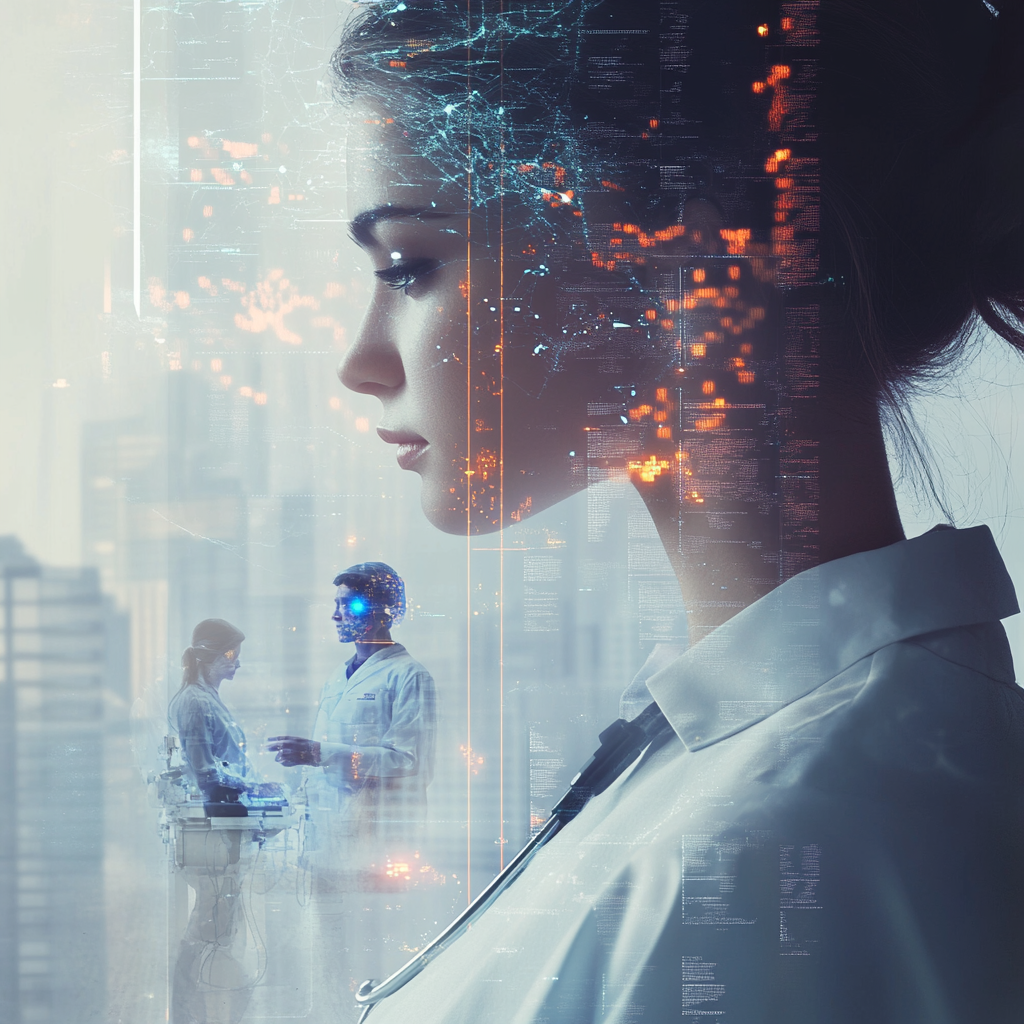From Hollywood to Healthcare – How AI is Reshaping Our World
From revolutionary AI-enhanced filmmaking to cutting-edge predictive medicine, artificial intelligence is defining the future.
AI Is No Longer the Future—It’s Reshaping Our Reality Today
Artificial intelligence isn’t just a tool—it’s a force reshaping industries, redefining creativity, and revolutionising entire fields.
From Hollywood to hospitals, AI is proving its ability to push boundaries, solve problems, and spark controversy.
But as AI’s influence grows, so do the ethical questions: how much control should we give it? And where do we draw the line?
To understand AI’s impact, let’s dive into three real-world examples—from deepfake celebrities to life-saving medical breakthroughs, and even predicting crime before it happens.
AI in Action: 3 Game-Changing Case Studies
AI in Film: Deepfake Technology & Digital Resurrection
Hollywood is using AI not just to edit films but to resurrect actors and create entirely digital performances. Imagine watching a foreign film where the actors actually look like they’re speaking your language—without awkward overdubbing.
✦ In Rogue One: A Star Wars Story, AI was used to recreate Peter Cushing’s Grand Moff Tarkin, decades after his passing.
✦ Similarly, AI brought Carrie Fisher back to the screen in The Rise of Skywalker, blending archival footage with deepfake enhancements.
✦ Deepfake technology is now being explored to dub movies seamlessly in multiple languages, where an actor’s mouth movements are AI-synced to match different dialogues, making foreign films feel more natural and immersive.
✅ Key Impact: AI is changing the future of film, allowing for digital actors, seamless multilingual dubs, and hyper-realistic special effects.
 The Ethical Question: While this technology opens new creative possibilities, it also raises concerns about consent, authenticity, and misinformation. Who decides when it’s acceptable to digitally resurrect an actor, and how do we prevent deepfake technology from being misused?
The Ethical Question: While this technology opens new creative possibilities, it also raises concerns about consent, authenticity, and misinformation. Who decides when it’s acceptable to digitally resurrect an actor, and how do we prevent deepfake technology from being misused?
AI in Healthcare: Google DeepMind’s Life-Saving Breakthroughs
Google’s DeepMind AI has revolutionised healthcare, often outperforming human doctors in disease detection, diagnostics, and medical research.
✦ AlphaFold, DeepMind’s AI, solved the 50-year-old mystery of protein folding, unlocking potential cures for diseases like Alzheimer’s and cancer.
✦ AI now has the ability to detect eye diseases, heart conditions, and early-stage cancer with an often greater accuracy than human specialists.
✦ AI-powered drug discovery is accelerating medical advancements, cutting years off research and development timelines.
✅ Key Impact: AI is transforming medicine, potentially saving millions of lives while reducing healthcare costs.
 The Ethical Question: While AI can enhance diagnostics and treatment, it also raises concerns about data privacy, bias in AI models, and the risk of over-reliance on automation. Who is responsible when AI makes a medical error, and how do we ensure AI-driven healthcare remains equitable and accessible to all?
The Ethical Question: While AI can enhance diagnostics and treatment, it also raises concerns about data privacy, bias in AI models, and the risk of over-reliance on automation. Who is responsible when AI makes a medical error, and how do we ensure AI-driven healthcare remains equitable and accessible to all?
AI in Crime-Fighting: Predictive Policing & Facial Recognition
AI is now being used to catch criminals before they commit crimes—a real-life Minority Report.
✦ Cities like Los Angeles and London are deploying predictive policing AI, analysing crime patterns and social behavior to predict where crimes are likely to occur.
✦ Facial recognition AI like Clearview AI has helped police identify suspects in seconds, matching faces from security footage to global databases.
✦ While controversial, AI-powered law enforcement has already led to the arrest of countless fugitives worldwide.
✅ Key Impact: AI is revolutionising law enforcement, making crime prediction and suspect identification faster and more efficient.
 The Ethical Question: While AI can enhance public safety, it also raises concerns about privacy violations, racial and socioeconomic bias, and wrongful identification. If AI-driven policing is based on flawed data, could it reinforce existing inequalities rather than prevent crime?
The Ethical Question: While AI can enhance public safety, it also raises concerns about privacy violations, racial and socioeconomic bias, and wrongful identification. If AI-driven policing is based on flawed data, could it reinforce existing inequalities rather than prevent crime?
The Need for Human Guidance in an AI-Driven World
AI is unlocking unimaginable possibilities, from revolutionary healthcare breakthroughs to digital immortality in film and predictive crime prevention.
But as AI expands its reach, one question looms: how much control should we give it?
While AI can create, optimise, and predict, it lacks human intuition, ethics, and emotional depth. It can detect diseases but can’t replace a doctor’s empathy, generate scripts but can’t craft truly original storytelling, and predict crime but risks reinforcing bias.
The real power of AI lies not in total automation, but in collaboration with human creativity, judgment, and oversight. Used responsibly, AI can amplify our potential—but without guidance, it risks removing the very qualities that make us human.
The future of AI isn’t about replacing us—it’s about how we choose to use it. Will we steer AI toward progress, or let it decide for us?
What do you think? Should AI have limits, or are we holding back innovation? Drop your thoughts below!
Final Thoughts: AI is Reshaping Every Industry—But At What Cost?
AI is no longer a distant future—it’s here, and it’s transforming everything. From revolutionising healthcare and redefining filmmaking to reshaping law enforcement, AI is proving to be one of the most powerful forces in human history.
But with great power comes great responsibility. AI can enhance creativity, save lives, and increase efficiency, but it also raises serious ethical concerns—from deepfake deception to predictive policing biases.
As AI continues to evolve, the real question is not what AI can do, but what we should allow it to do. How do we strike the right balance between innovation and human oversight?
What’s your take? Is AI leading us toward a brighter future, or are we moving too fast? Drop a comment below!
#AIInnovation #FutureTech #AIRevolution #EthicsOfAI #TheFutureIsNow

